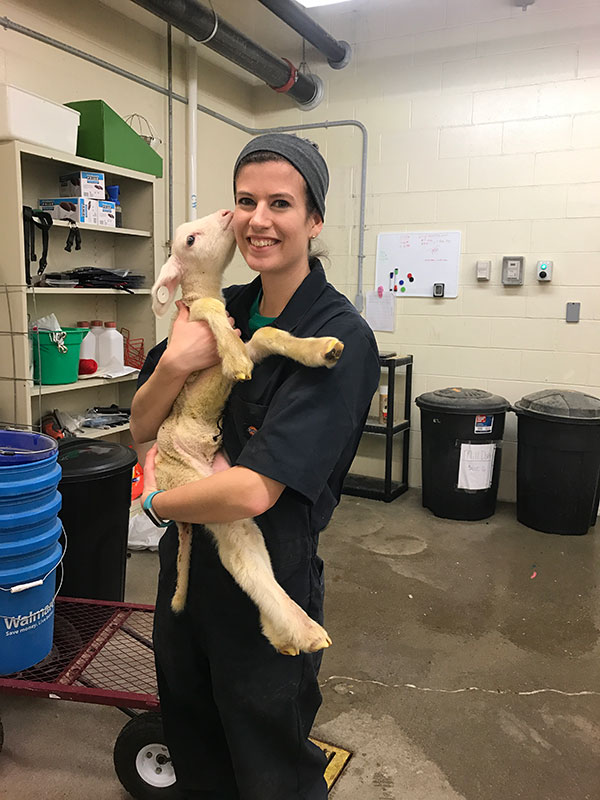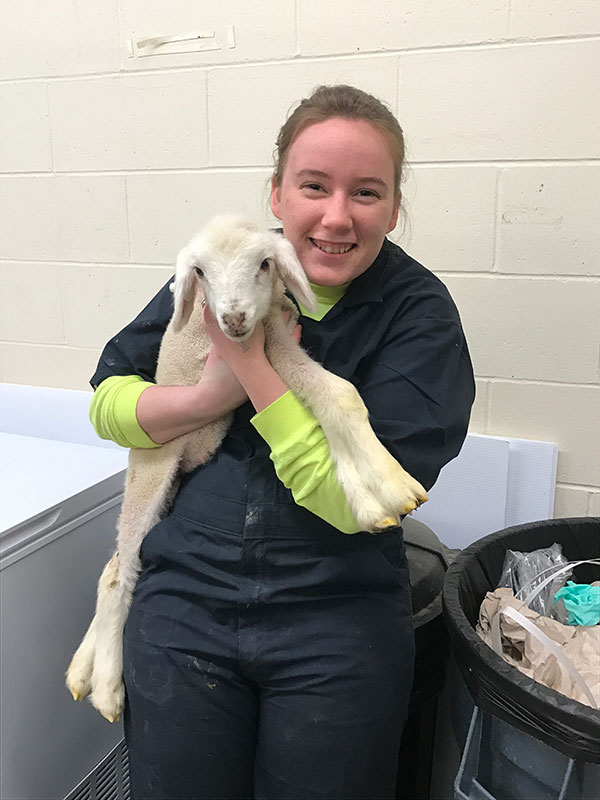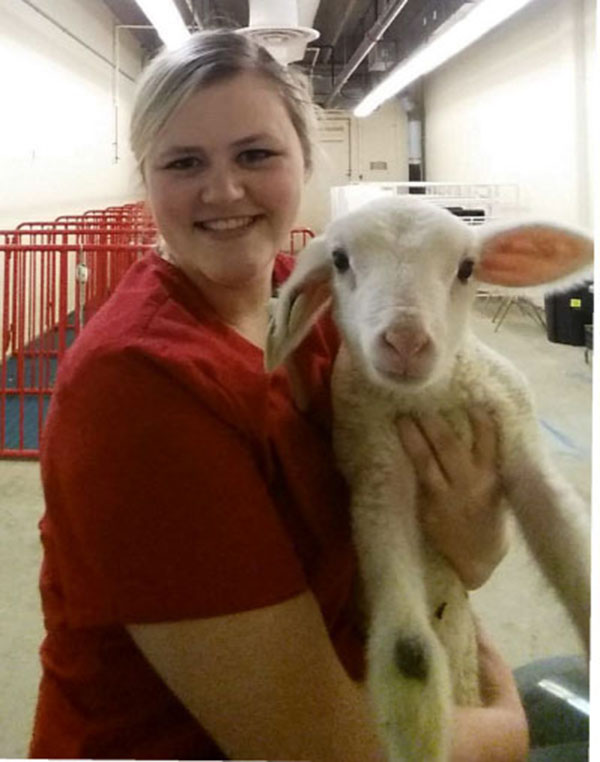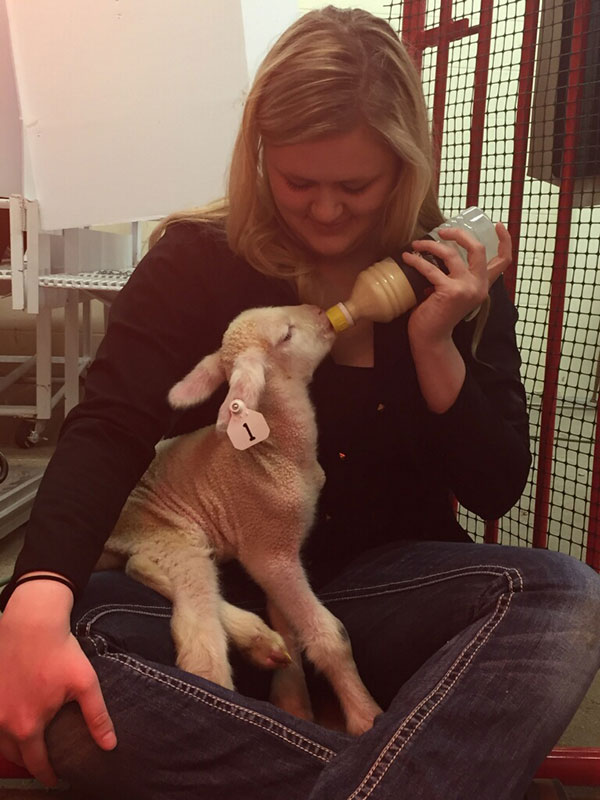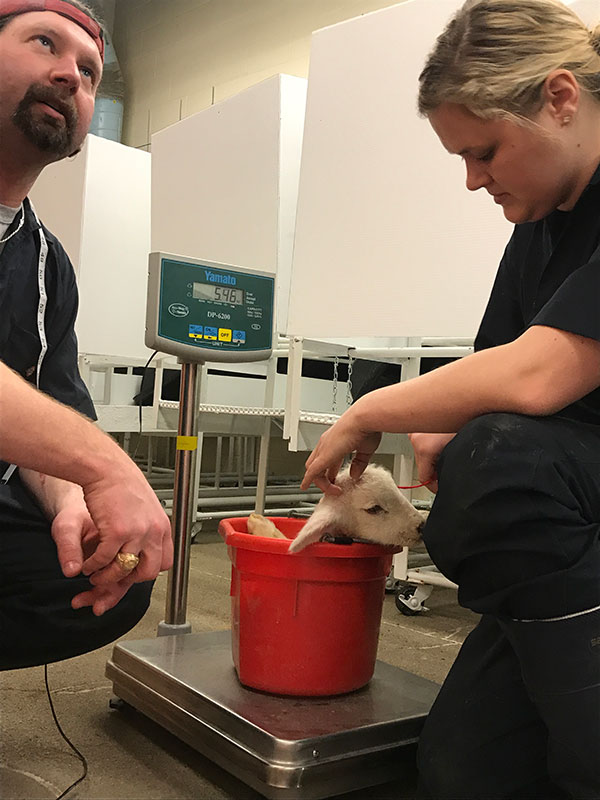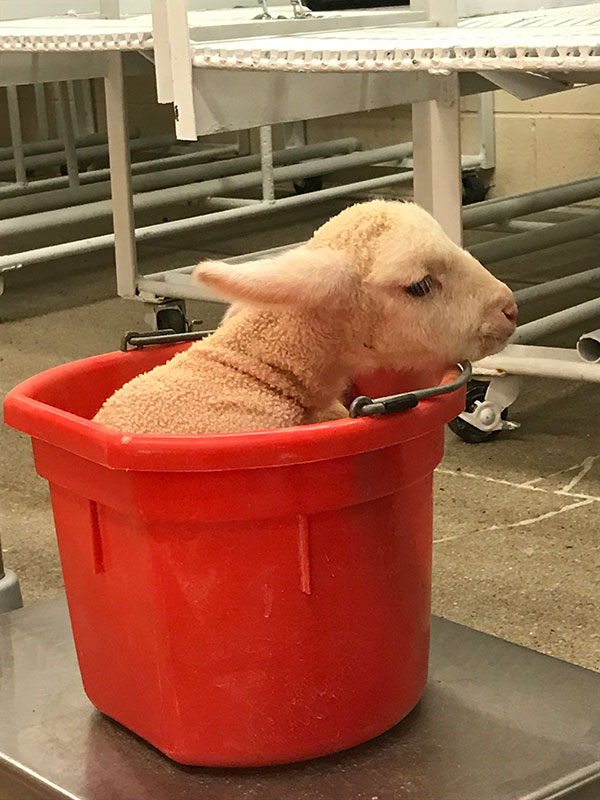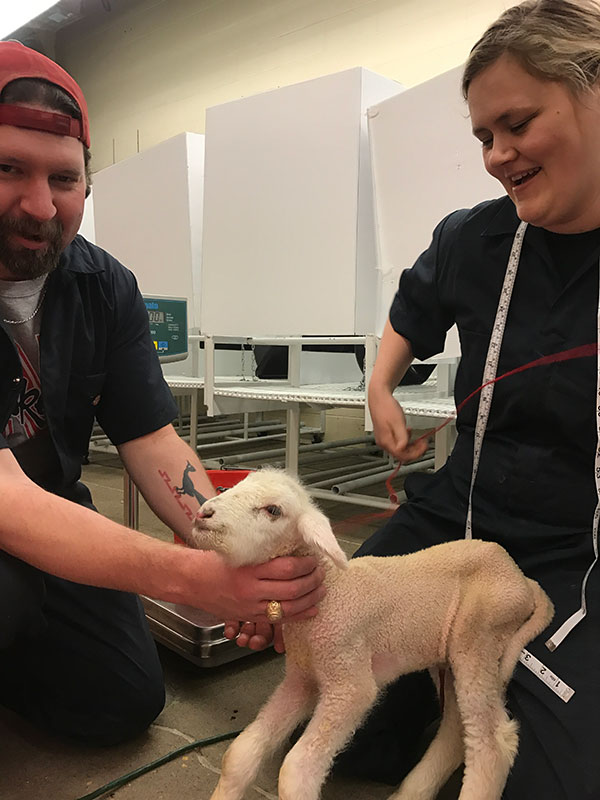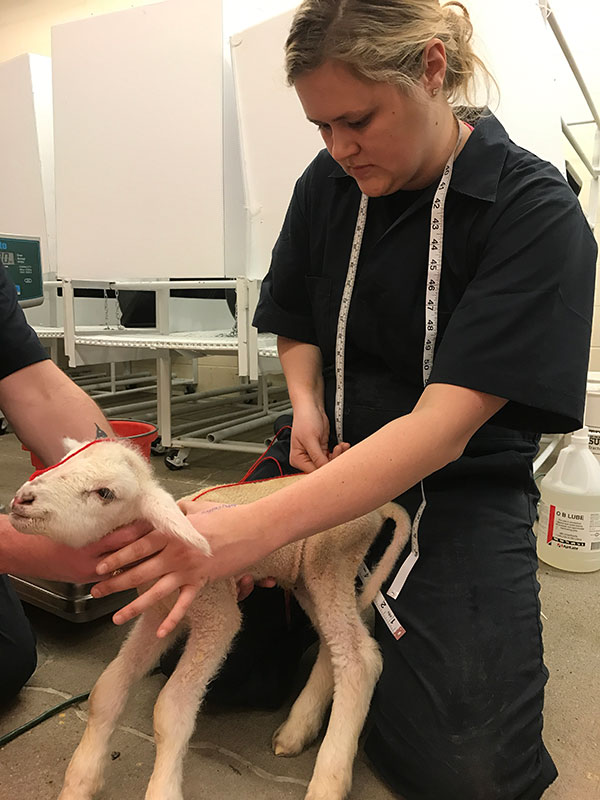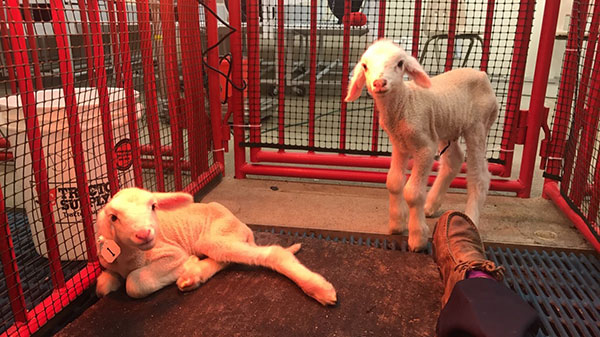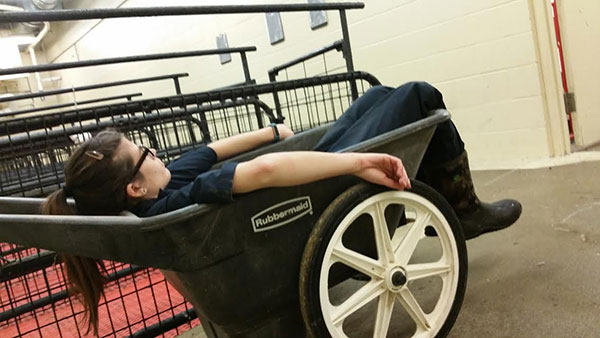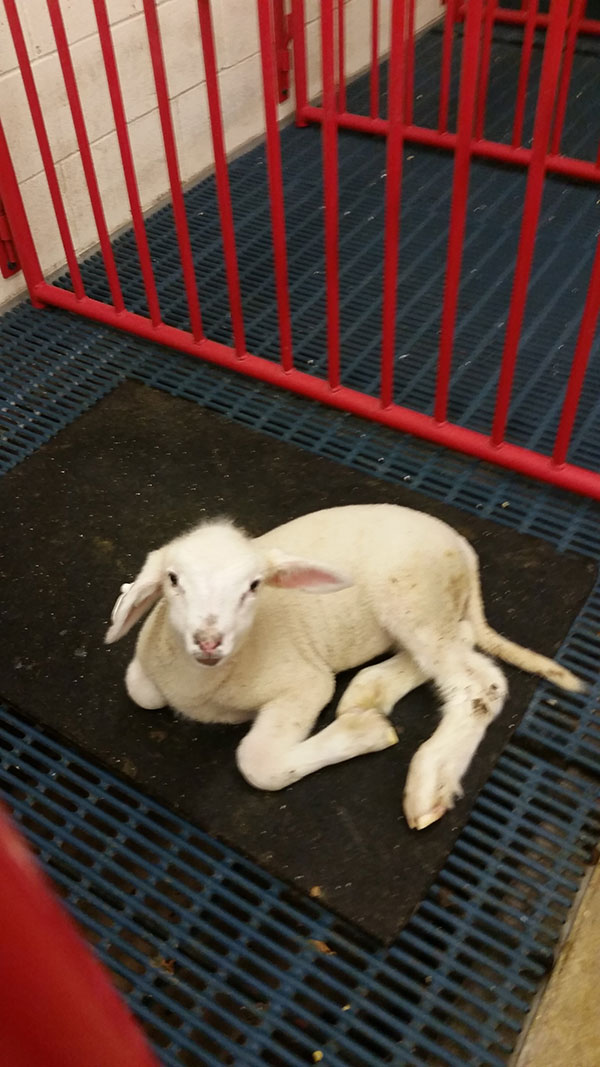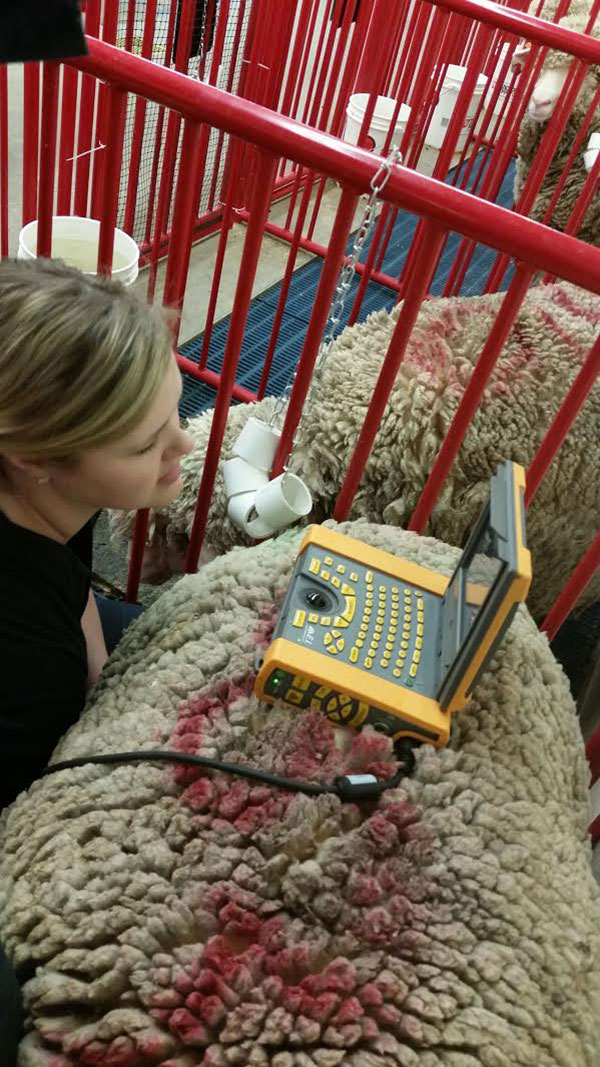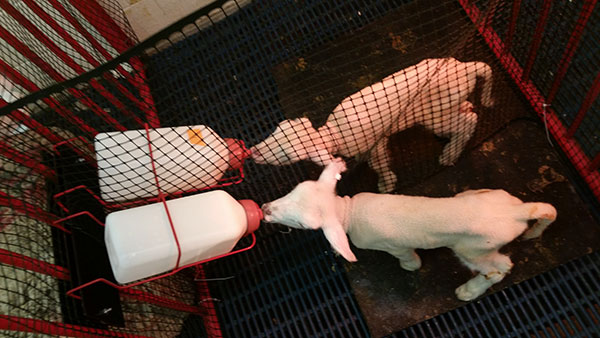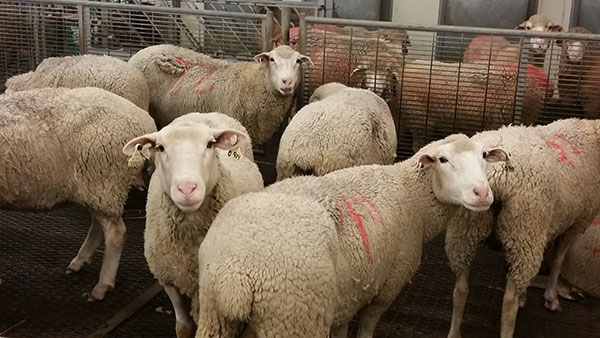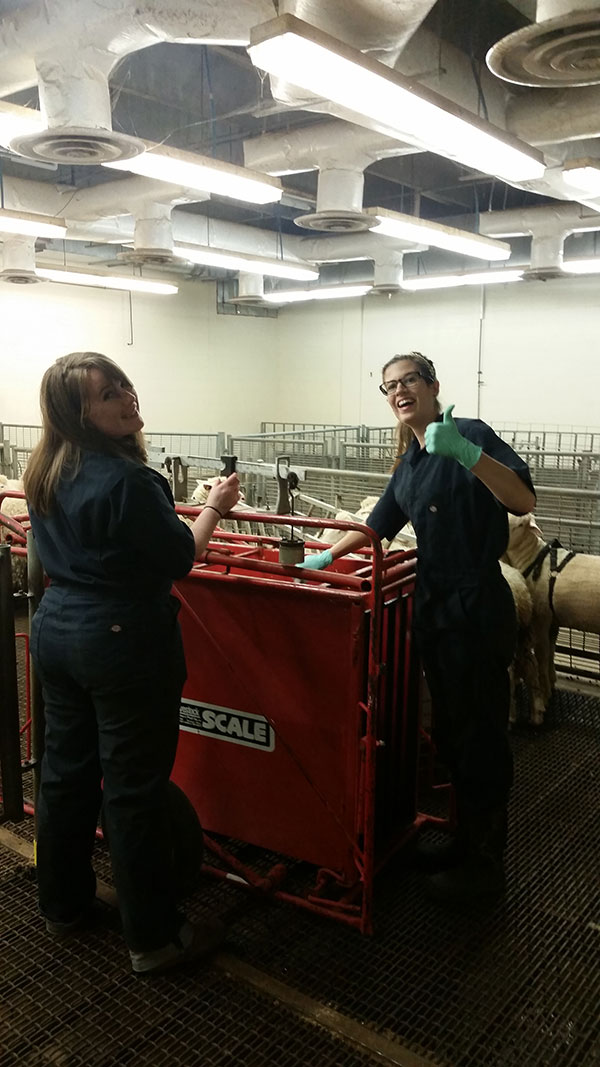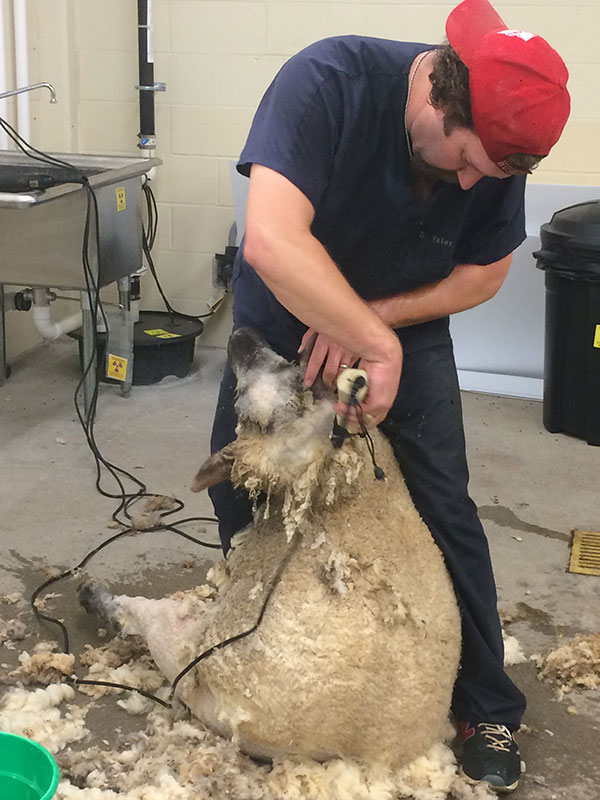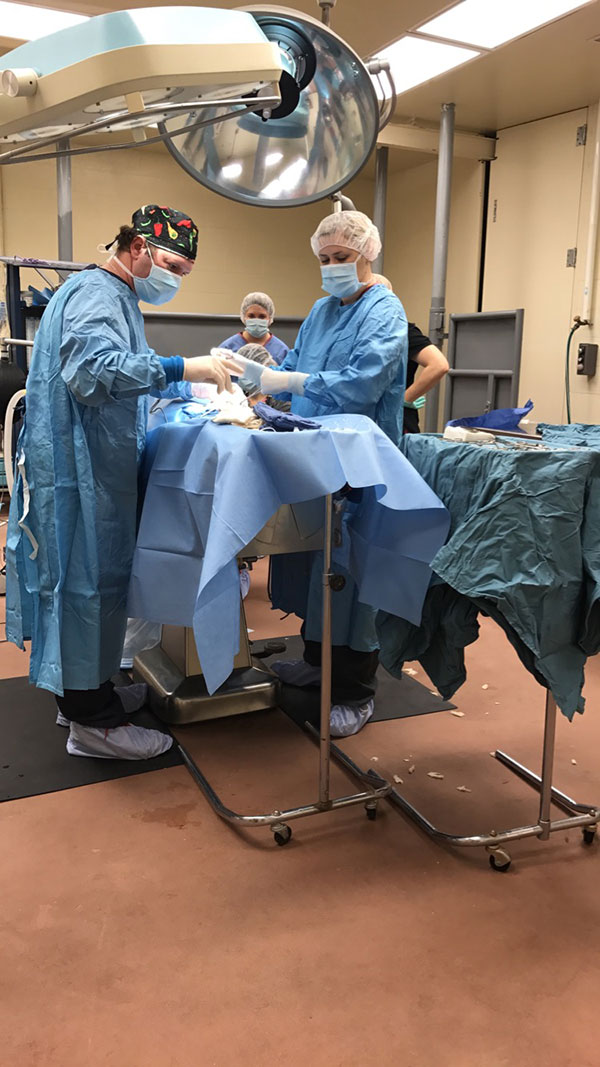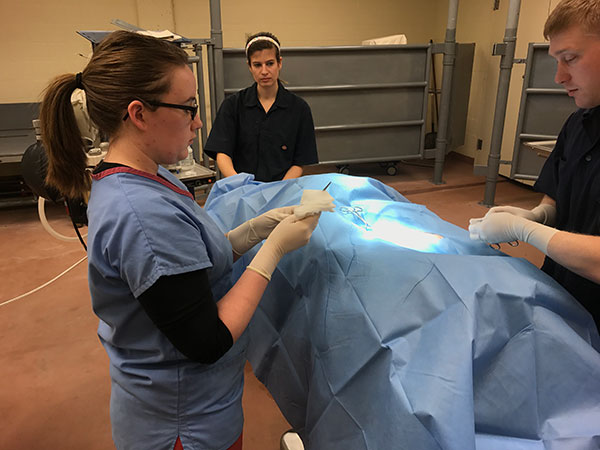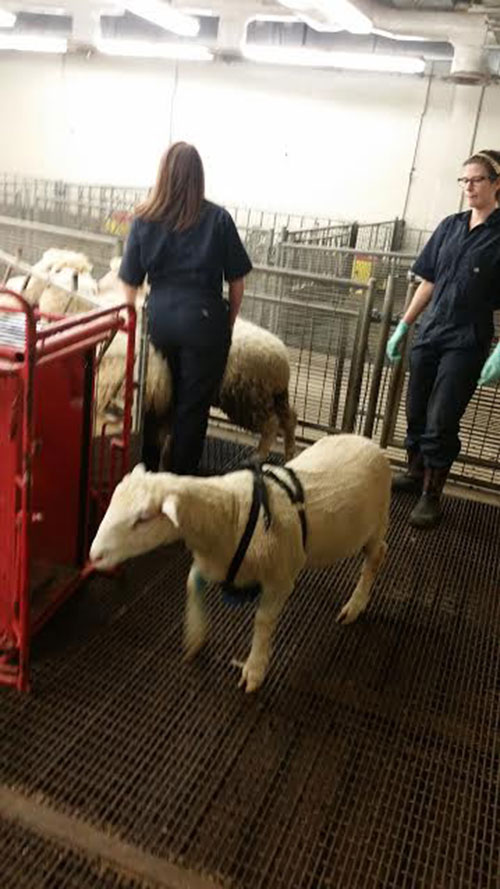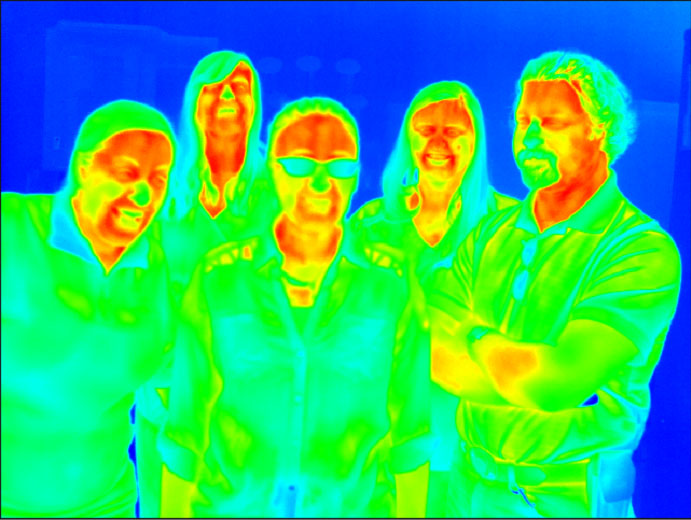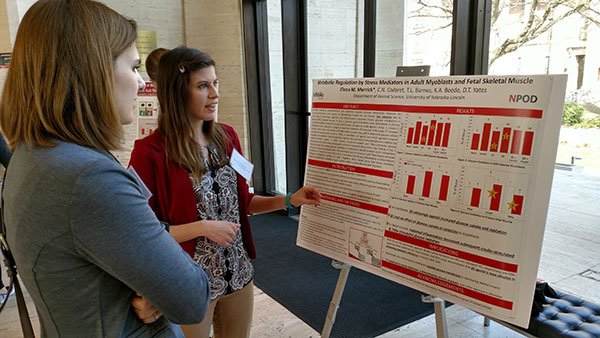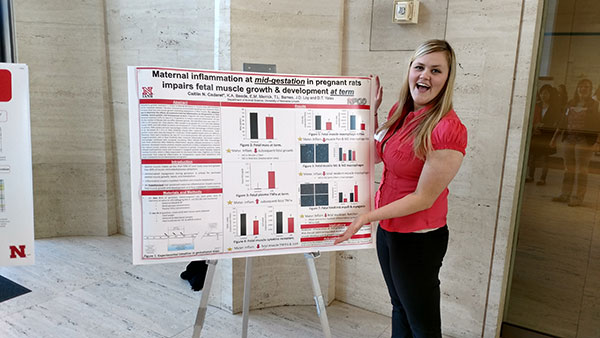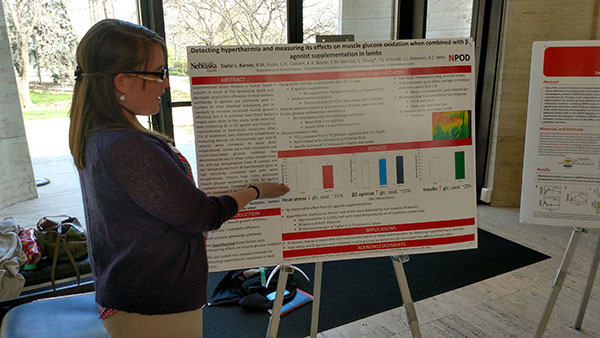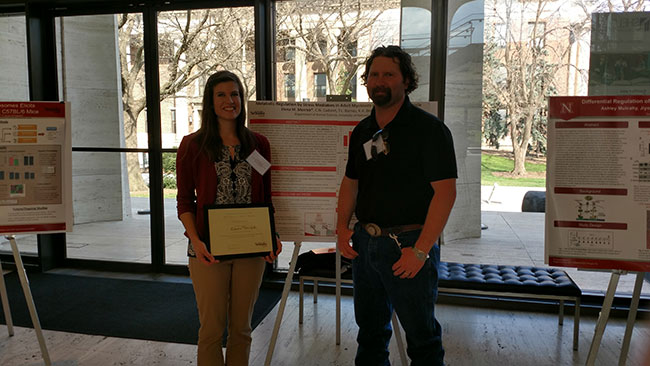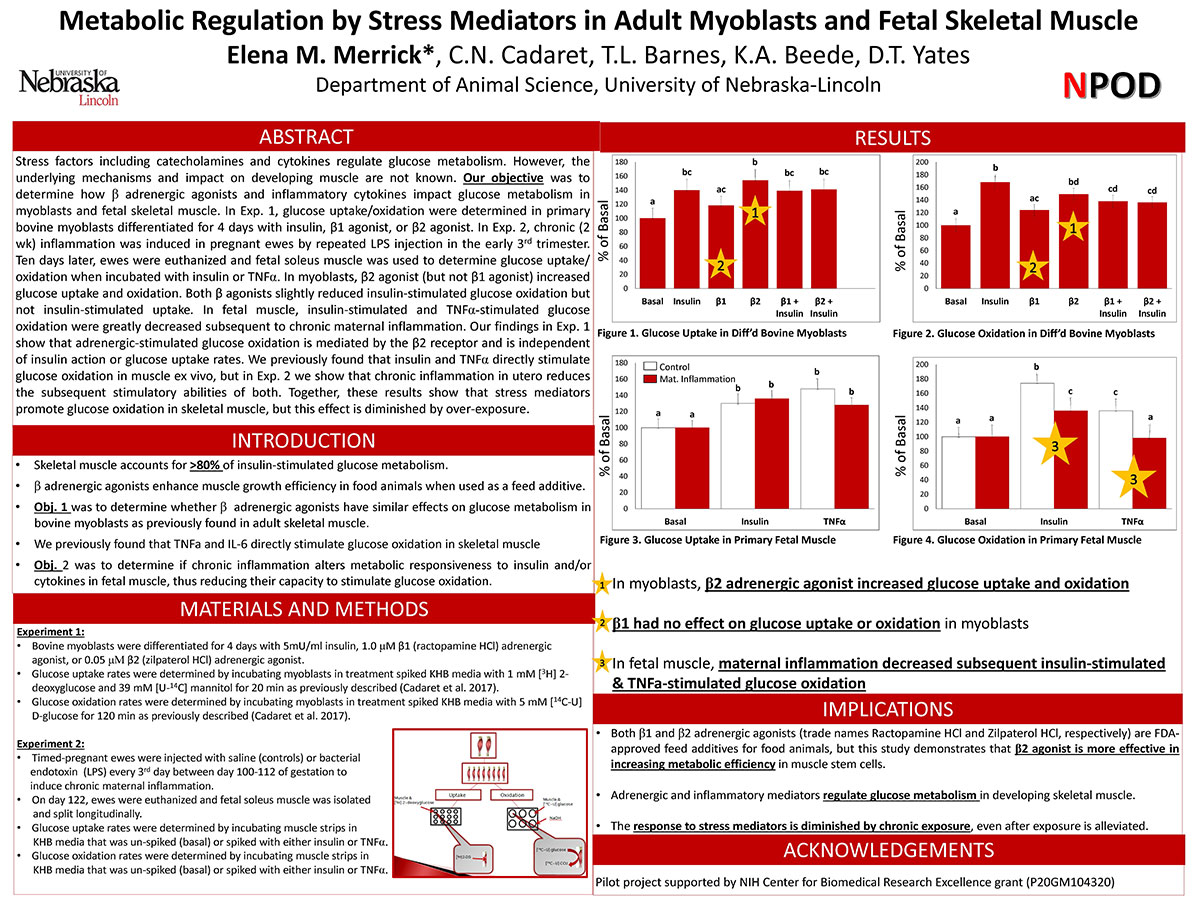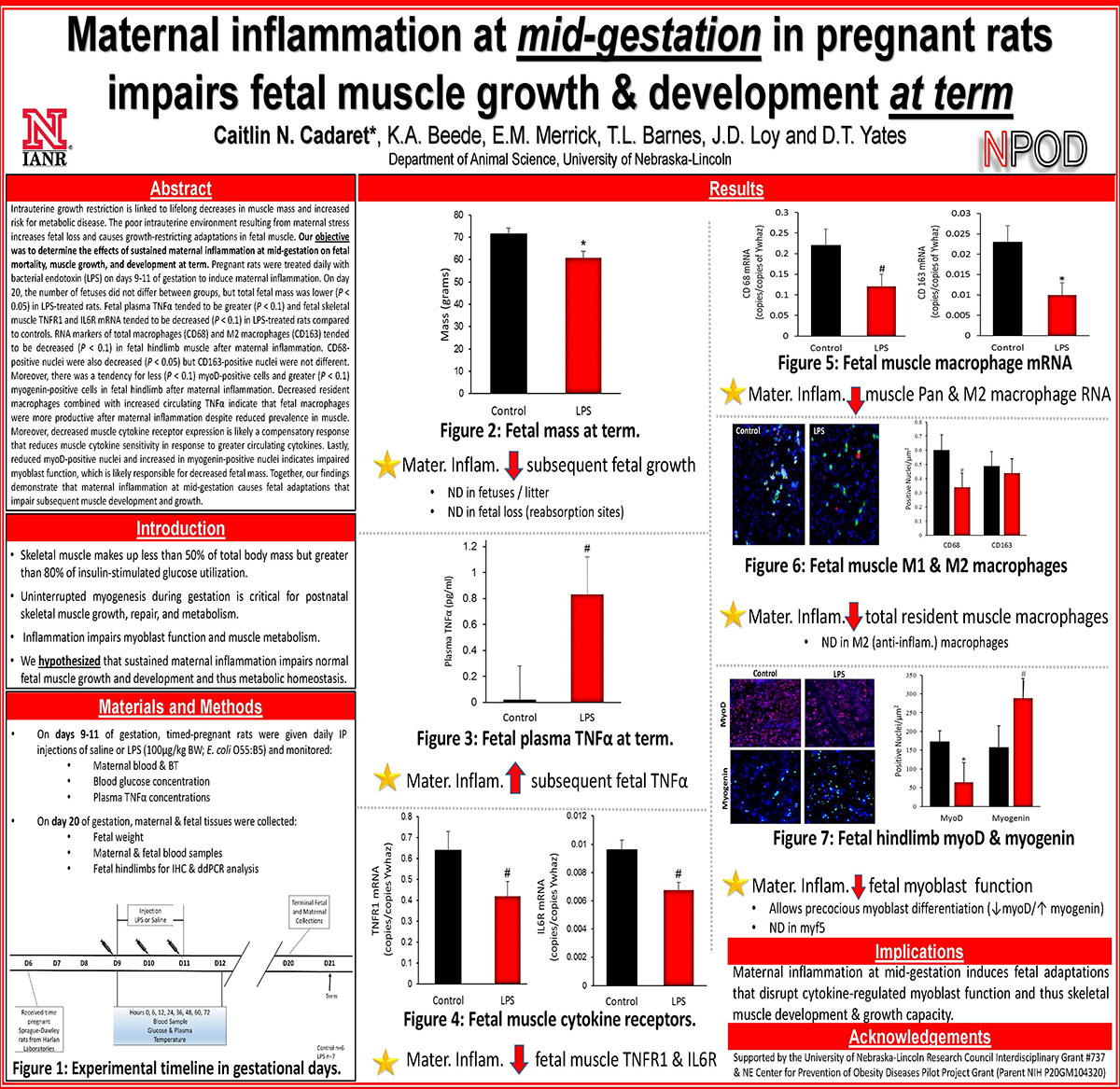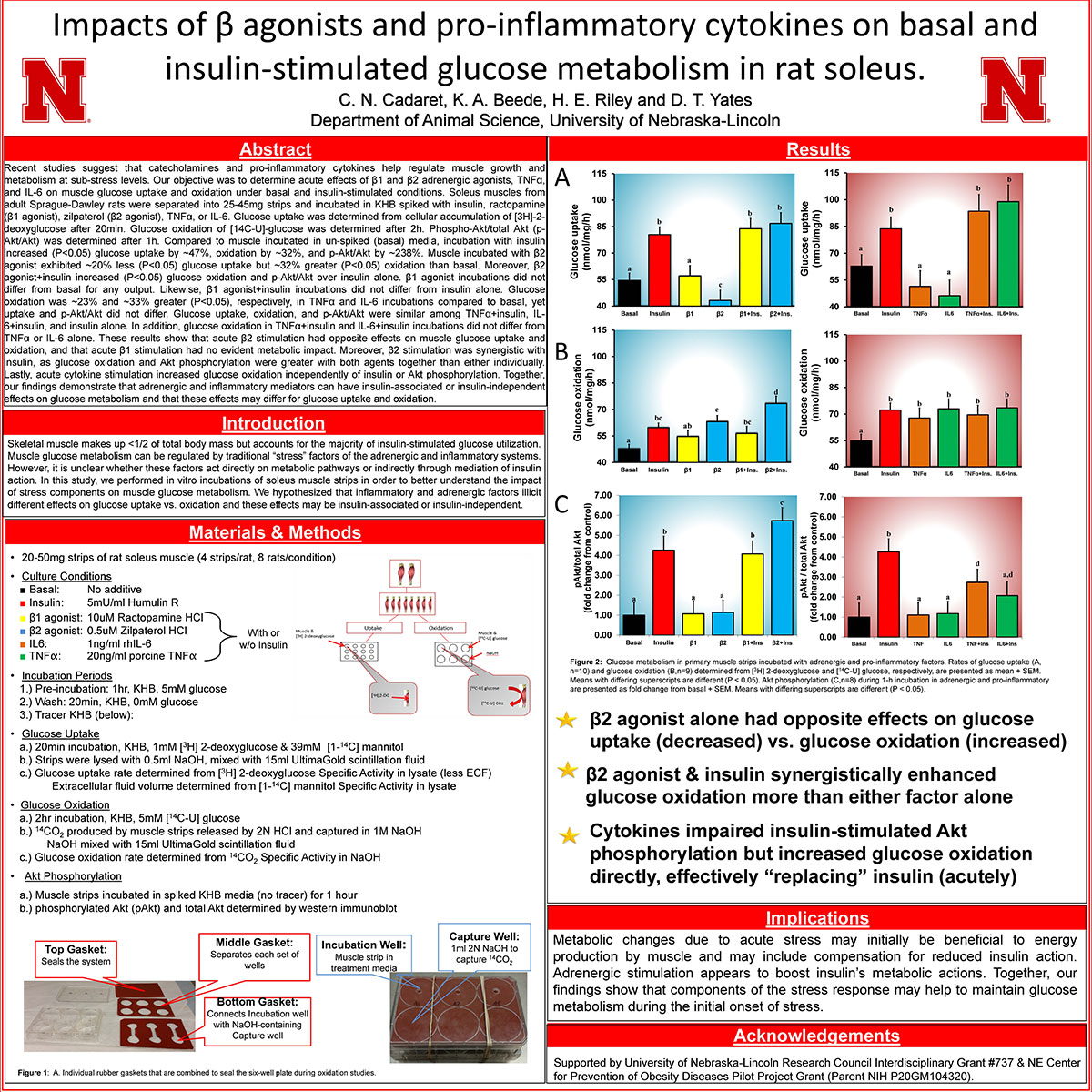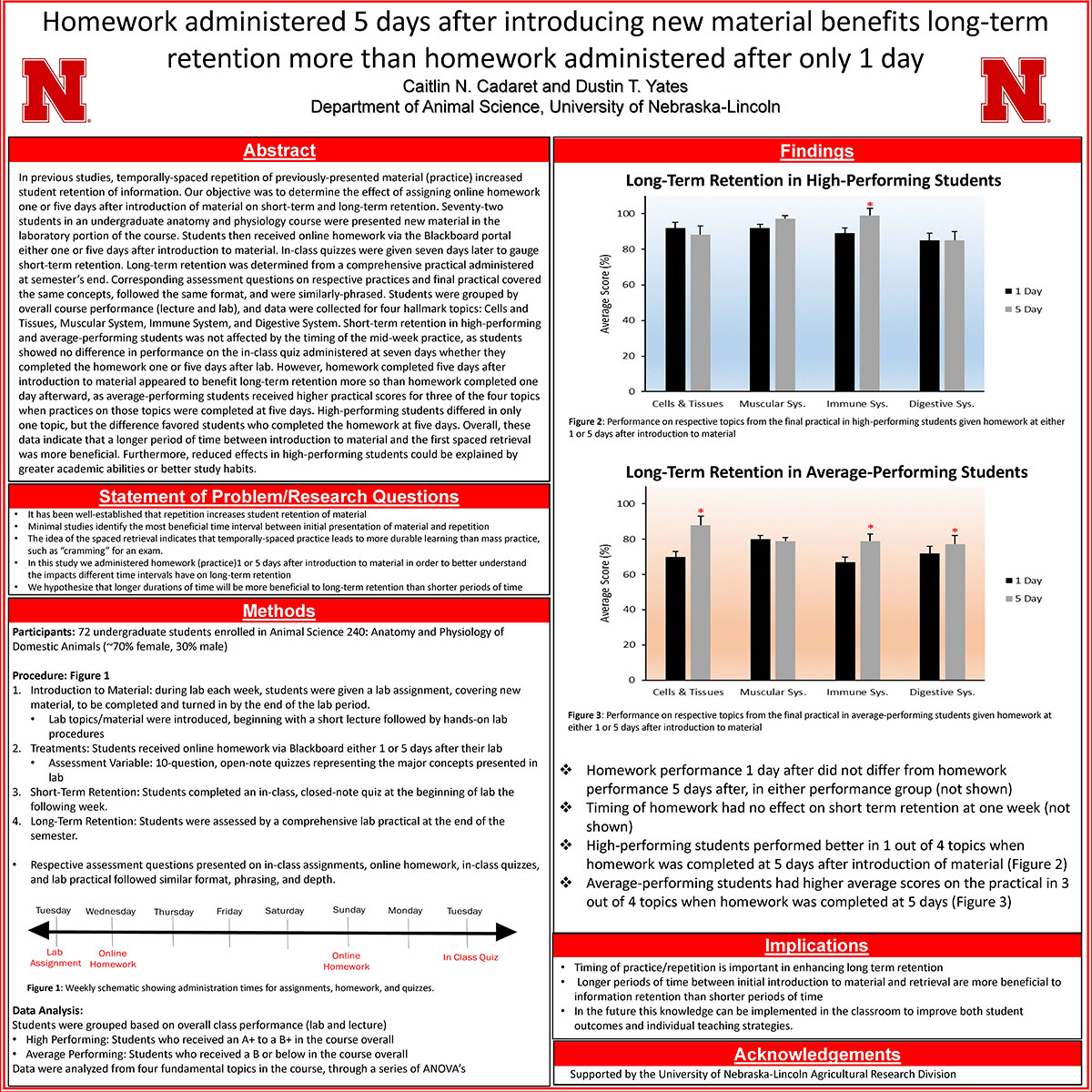Research Interests
We study metabolic fetal programming related to maternal stress, placental insufficiency, and intrauterine growth restriction. In humans and companion animals, IUGR-born individuals (~10% of all US-born babies; ~25% worldwide) are at much greater risk for obesity, diabetes, hypertension, and other metabolic disorders that shorten life expectancy and reduced quality of life. In food animals, IUGR leads to less efficient growth and poorer carcass quality, which reduces the financial sustainability of meat animal production.
Our lab utilizes pregnant sheep and rodents as physiological models for humans and ruminant livestock species. We have developed research techniques to allow us to measure fetal physiological responses to maternal stress factors in real-time over the last trimester of pregnancy. In addition, we can study glucose metabolism in live animals, primary tissue samples, and cells cultures. A large factor in metabolic homeostasis is proper skeletal muscle growth, and we have developed ex vivo and in vitro protocols for measuring functional capacity of muscle stem cells, as well as microscopy and immunoblot techniques for determining muscle fiber dynamics.
Our long-term research goal is to identify the developmental adaptations that occur in utero in response to maternal stressors and then use those findings to develop postnatal nutritional/pharmacological intervention strategies for IUGR-born offspring.
Our approach encompasses investigation at 3 levels: the cellular/molecular level, the physiological system level, and the whole-animal level. The benefit of this approach is two-fold. First, our findings generate a broader understanding of the physiological issues that we study. Second, our grad students and undergrads gain experience in a wider range of research skills. It would not be uncommon for a lab member to feed and weigh sheep, stain tissue sections for microscopy, change media in cell cultures, perform a hormone assay on blood samples, surgically implant fetal femoral catheters, measure gene expression in isolated RNA, and attend a seminar by an internationally-recognized leader in the field all within a normal week. In addition, our grad students have the opportunity to develop teaching and lecture skills by acting as teaching assistants for Dr. Yates' Animal Physiological Systems course taught each Fall. TAs get hands-on experience in developing teaching materials and guiding 20 junior-level undergrads through hands-on learning activities once a week.
Overview of Research Topics
- Adaptive changes in adrenergic regulation of muscle growth and metabolism in IUGR fetuses
- Adaptive changes in cytokine/prostaglandin regulation of muscle growth and metabolism in IUGR fetuses
- Adaptive changes in immune cell populations in IUGR fetal skeletal muscle
- Mechanistic differences between β1 and β2 agonists in feedlot animals, especially regarding their effects on growth, metabolic phenotypes, and animal well-being
- Differences between long-term and intermediate-length maternal stressor on fetal metabolic and growth adaptations
- Interactions between adrenergic and inflammatory systems during fetal stress
Lab Members
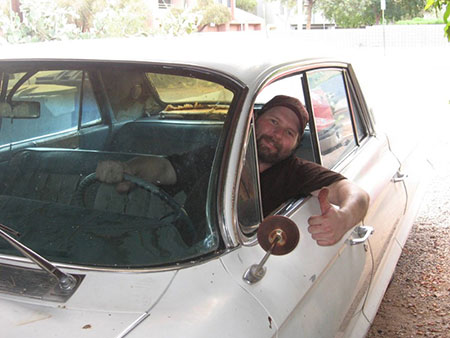 Dustin Yates, PhD – Dr. Yates was born and raised in the small "Cotton & Cattle" town of Weinert, Texas in the west-central part of the state. He graduated from Texas A&M University in 2004 with a BS in animal science. After managing the graveyard shift in a large feedmill for a year, Dr. Yates returned to school at Angelo State University in San Angelo, Texas and earned a MS in reproductive physiology with Dr. Mike Salisbury in 2006. His Master's thesis examined the mitigating effects of seaweed extract on heat stress-induced subfertility in male goats. Dr. Yates then joined the lab of Dr. Tim Ross at New Mexico State University and graduated with a PhD in reproductive physiology in 2009. His dissertation produced eight manuscripts related to stress-induced male and female subfertility. In 2010, Dr. Yates began a four-year postdoctoral research fellowship in the lab of Dr. Sean Limesand at The University of Arizona. During this time, Dr. Yates gained many of the research skills and techniques that his lab uses today. His research with Dr. Limesand produced several key new pieces of information regarding fetal programming of muscle growth and metabolism, as well as several novel laboratory and surgical techniques for studying fetal physiology. In March of 2013, Dr. Yates began his current faculty position at UNL as Animal Stress Physiologist in the Animal Science department. He is also a member of the Nebraska Center for Prevention of Obesity Diseases (NPOD). Dr. Yates and his wife reside in nearby Eagle, NE and have two wonderful young children, a couple dogs, and a 1962 Cadillac Fleetwood.
Dustin Yates, PhD – Dr. Yates was born and raised in the small "Cotton & Cattle" town of Weinert, Texas in the west-central part of the state. He graduated from Texas A&M University in 2004 with a BS in animal science. After managing the graveyard shift in a large feedmill for a year, Dr. Yates returned to school at Angelo State University in San Angelo, Texas and earned a MS in reproductive physiology with Dr. Mike Salisbury in 2006. His Master's thesis examined the mitigating effects of seaweed extract on heat stress-induced subfertility in male goats. Dr. Yates then joined the lab of Dr. Tim Ross at New Mexico State University and graduated with a PhD in reproductive physiology in 2009. His dissertation produced eight manuscripts related to stress-induced male and female subfertility. In 2010, Dr. Yates began a four-year postdoctoral research fellowship in the lab of Dr. Sean Limesand at The University of Arizona. During this time, Dr. Yates gained many of the research skills and techniques that his lab uses today. His research with Dr. Limesand produced several key new pieces of information regarding fetal programming of muscle growth and metabolism, as well as several novel laboratory and surgical techniques for studying fetal physiology. In March of 2013, Dr. Yates began his current faculty position at UNL as Animal Stress Physiologist in the Animal Science department. He is also a member of the Nebraska Center for Prevention of Obesity Diseases (NPOD). Dr. Yates and his wife reside in nearby Eagle, NE and have two wonderful young children, a couple dogs, and a 1962 Cadillac Fleetwood.
CV
Lab Manager
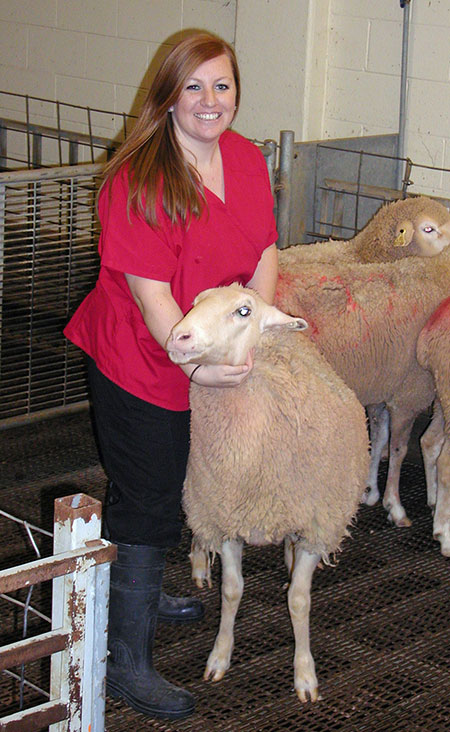 Kristin Beede, M.S.
Kristin Beede, M.S.Kristin was born in Kearney, Nebraska and after graduating from high school attended UNL with the original goal of attending vet school. Kristin completed her Bachelor's Degree in Animal Science in 2010 and then took an internship at Schering-Plough Animal Health for eight months. Following that she decided to continue her education in Reproductive Physiology and headed back to UNL to work on her Master's degree with Dr. Jennifer Wood. After completing her Masters work which focused on the effects of maternal obesity on adipose and muscle development in the mid-gestational mouse, Kristin took a job at GeneSeek as a laboratory technician in their veterinary diagnostics division. After one year at GeneSeek, a position opened up at the University with Dr. Yates so Kristin got the opportunity to get back to research which is what she loves to do. Kristin is in charge of the daily activities of the laboratory as well as training laboratory skills to the graduate and undergraduate students. Kristin along with her husband Matt and two dogs Abby and Bailey welcomed a precious baby girl, Emma, to their family in 2015.
PhD Students
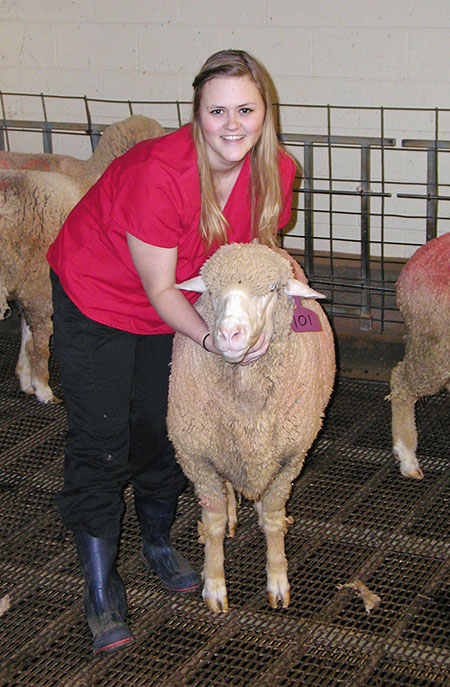
Caitlin Cadaret (MS expected 2016)
Caitlin found her passion for animal agriculture at a young age growing up on a part-time cow-calf operation in Northern California. Upon graduation from high school Caitlin began her undergraduate degree at Shasta College majoring in Sustainable Agriculture and University Studies. She later transferred to California State University, Chico where she received her Bachelor's Degree in Animal Science in 2014. While the original intent was to go to veterinary school, during her undergraduate career she found a special interest in Physiology and a desire to teach. Joining Dr. Yates lab in January 2015 Caitlin's research involves the effects of heat stress induced growth restriction on fetal muscle development and metabolism. Part of Caitlin's assistantship involves a 50% teaching appointment in which she teaches the laboratory portion of the undergraduate Anatomy and Physiology class. After graduation she plans to continue on to get her PhD and teach at the University level.
AWARDS:
2016 – William G. Whitmore Memorial Student Travel Grant, Univ of Nebraska-Lincoln
2016 – Aspen/Snowmass Perinatal Biology Travel Award, USDA/NIH
2016 – Graduate College Student Travel Grant, Univ of Nebraska-Lincoln
Caitlin's Perinatal Biology August 2016 PDF(1.04 mb)
Masters Students
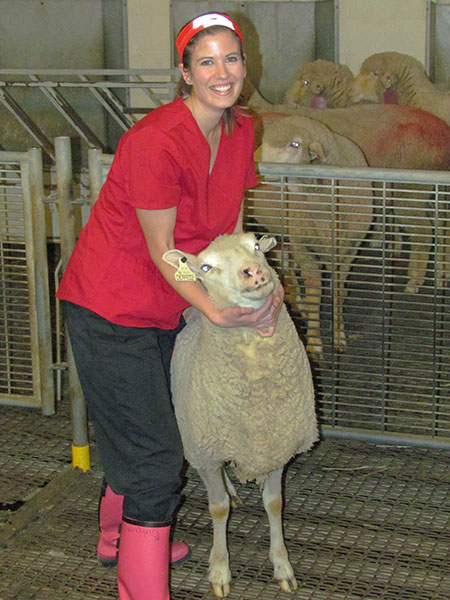
Elena grew up in the rural community of Danvers, Illinois. Her family owned a small hobby farm where they grew vegetables and raised chickens. Elena began her college career at Eastern Wyoming College in Torrington, Wyoming. While at EWC, Elena participated in the debate team, Block and Bridle, and Phi Theta Kappa. She received her Associate's Degree in Animal Science and decided to move back home to Central Illinois and attend Illinois State University. At ISU, Elena participated in Agriculture Science Club as well as Sigma Alpha. Elena received her Bachelor's degree in Animal Science in May of 2015. In August of 2015, she started graduate school here at UNL where she joined Dr. Yates's lab. Her research involves the effects of maternal stress on prenatal muscle development and glucose metabolism. Upon receiving a Master's Degree, Elena's career goal is to become a research scientist for a livestock company.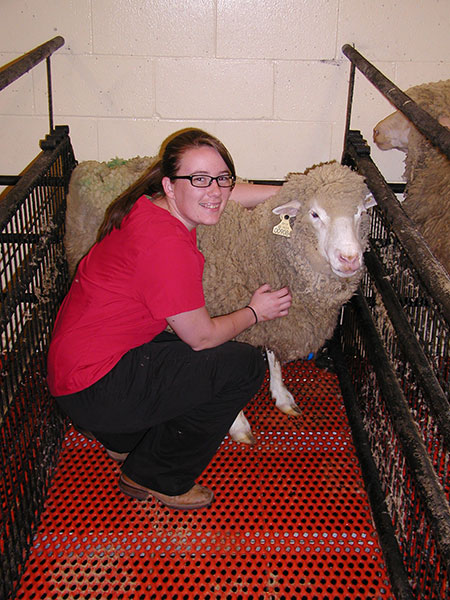
Taylor grew up in Gretna, Nebraska surrounded by animals both large and small. She showed horses and other species in 4-H which sparked a passion for animal science and teaching at an early age. After two years at two other colleges, she made the move to UNL to study animal science which ended up sparking an interest in physiology classes. She had the opportunity to be a teaching assistant for three of those physiology classes. While at UNL she also played a role in helping to develop the Hub (a student study/commons area), ran an undergraduate career networking night, and stayed heavily involved in 4-H. After graduating with her Bachelor's Degree in Animal Science in May 2016 she joined Dr. Yates and Dr. Jessica Peterson's labs to earn her Master's degree. Taylor's current career aspirations is to work in extension.
Undergraduate Students
Sophia Lentfer (BS expected 2020) -Former Students
Hannah Riley, BS – Hannah got a BS in Animal Science with a minor in Agribusiness in May 2016. She worked in our lab from 2014 through her graduation where she completed an Undergraduate Creative Activity and Research (UCARE) project. Hannah is currently pursuing her Master's degree with Dr. Mary Drewnoski at UNL in heifer development.
Visual Research Projects
Publications
- Cadaret CN, Beede KA, Riley HE, Yates DT. 2017. Acute exposure of primary rat soleus muscle to zilpaterol HCl (β2 adrenergic agonist), TNFα, or IL-6 in culture increases glucose oxidation rates independent of the impact on insulin signaling or glucose uptake. Cytokine. 96:107-113. PDF (681 kb)
- Yates DT, Cadaret CN, Beede KA, Riley HE, Macko AR, Anderson MJ, Camacho LE, Limesand SW. 2016. Intrauterine growth-restricted sheep fetuses exhibit smaller hindlimb muscle fibers and lower proportions of insulin-sensitive Type I fibers near term. Am J Physiol Regul Integr Comp Physiol. 310:R1020-1029. PDF (1,084 kb)
Proceedings Papers
- Cadaret CN, Beede KA, Riley HE, Yates DT. 2016. Insulin-associated and insulin-independent impacts of β adrenergic agonists and pro-inflammatory cytokines on glucose metabolism in primary rat soleus muscle. Proceedings, Western Section, American Society of Animal Science. Vol. 67. PDF (588 kb)
- Cadaret CN, Beede KA, Merrick EM, Barnes TL, Loy JD, Yates DT. 2017. Maternal inflammation at mid-gestation in pregnant rats impairs fetal muscle growth & development at terms. Proceedings, Western Section, American Society of Animal Science. Vol. 68. PDF (401 kb)
- Barnes TL, Kubik RM, Cadaret CN, Beede KA, Merrick EM, Chung s, Schmidt TS, Petersen JL, Yates DT. 2017. Identifying hyperthermia in heat-stressed lambs and its effects on β agonist-stimulated glucose oxidation in muscle. Proceedings, Western Section, American Society of Animal Science. Vol. 68. PDF (402 kb)
Lab Adventures
Videos
Elena's VideoStill Life
